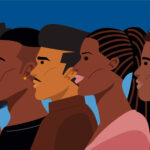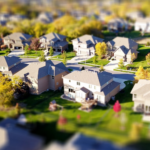Search
New research: Bay Area residents face persistent housing crisis, with additional needs varying by county and race
Calls and texts to United Way Bay Area for assistance on its 211 helpline over the prior 90-day period reflect a region struggling to meet basic needs
May 21, 2024
MEDIA CONTACT:
Blake Case
(601) 832-6079
blake@emccommunications.com
San Francisco, May 9, 2024 — United Way Bay Area — one of the most respected and highly effective philanthropic organizations fighting poverty in the region — released its quarterly 211 Helpline Snapshot report, featuring data on the calls and texts the nonprofit’s 211 call center received from Bay Area residents reaching out for help from January through March, 2024. United Way Bay Area’s 211 Helpline is a free, vital service, available in 150 languages that connects callers with health and human services throughout the Bay Area.
According to the report, 10,577 calls or texts for help came in to 211 during the 90-day period, up 7.2% from the previous quarter. Nearly half of all contacts came from residents seeking housing support. The counties with the most pressing need for housing support are San Mateo and Santa Clara.
“Housing remains the number one reason Bay Area residents are calling 211,” said Clare Margason, United Way Bay Area’s 211 Helpline Director, “reflecting a persistent housing crisis especially concentrated in Santa Clara and San Mateo. It’s also worth noting that calls for other basic needs such as utilities and food vary greatly, especially when looking at race/ethnicity and the city the caller is from.”
In Solano County, housing affordability remains a concern, but at a level consistent with previous baselines. What stands out is how much our neighbors in Solano are struggling to cover food and utility costs, accounting for about 23% and 19% of calls, respectively, exceeding the region’s averages for those categories. In San Francisco, housing still accounts for 1 in 3 calls, but it is clear our neighbors’ paychecks are not enough to cover groceries, resulting in a higher than average call volume for food support. Marin and Napa also continue to struggle with housing, but what’s noteworthy in these communities is paying utilities and other household needs are harder than average for the region.
Native American neighbors represent a small percentage of overall calls, but have particularly acute needs for housing, food and utilities, and mental health and substance use assistance. Further, despite representing 7.5% of the Bay Area population, Black neighbors accounted for over 11% of all calls, with over 64% being for housing support, a figure significantly higher than the regional average. For Hispanic/Latino neighbors, housing and income represent the lionshare of need, showing that paychecks aren’t going far enough to cover rent and other basic necessities. These racial groups also have the highest rates of poverty in the Bay Area.
Over 600,000 Bay Area households, or 25% of all households, don’t earn enough to cover the basics each month: food, housing, childcare, transportation, and healthcare. A family of four needs $110,000 per year to cover basic needs, but two adults working full-time for minimum wage only earn $62,400 per year. Federal poverty programs cut off assistance once a family earns over $27,750 per year, leaving about 20% of Bay Area residents struggling to fill the gap.
United Way Bay Area’s complete 211 dashboard is available online.
To speak with United Way Bay Area 211 Helpline Director Clare Margason, contact Blake Case at mailto”blake@emccommunications.com or (601) 832-6079.
###
About United Way Bay Area
United Way Bay Area (UWBA) mobilizes the Bay Area to assist people living in poverty and to dismantle the root causes of poverty. One of the most respected and highly effective philanthropic organizations fighting poverty, UWBA supports workers and students seeking employment and better careers, helps families struggling to meet basic needs, supports our neighbors toward achieving their financial stability goals, and advocates for housing justice for all Bay Area residents. Learn more at uwba.org.


